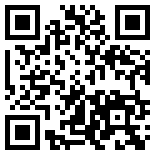關(guān)于旅行計(jì)劃的英語口語對話
英語口語是被英語國家人民普遍應(yīng)用的口頭交流的語言形式,。英語口語通常是通過聲音傳播的,。想提高英語口語水平,首先要在語音上下功夫,方法是無法取 代刻苦的學(xué)習(xí).要大量的閱讀和聽力做基礎(chǔ),在讀和聽的過程中,積累詞匯,掌握句型,并熟悉英語表達(dá)思想的方式,著重培養(yǎng)語感,。下面是廣州山木英語學(xué)校小編為您整理的關(guān)于旅行計(jì)劃的英語口語對話,突破交流困境,,講一口流利地道的英語,!讓我們一起來學(xué)習(xí)吧!
A: I am going on a trip next week. B: That is nice. Where are you going to? A: I would like to go to the historical city. Van. B: Are you going with a package tour? A: No. I prefer travelling individually. B: Really? I have never tried that mode of travel. I always believe that a package tour is more convenient. You don't have to worry about room and board during travel. A: Yes. you have a point there. But travelling individually can offer me more freedom. I can decide when to start. where to linger a little lon-ger. I can always adjust the plan. B: But you might encounter incon-venience such as getting accom-modation for the night and a place for meals. A: That is really the disadvantage of travelling individually. have a friend who is working in Van now. I can turn to him for help. I am thinking about inviting him as my tour guide. B: In that case. travelling individually may he a good idea. You can ask him to give you some suggestion as to the hotel and you enjoy the trip!
譯文:
A:我下周要出去旅游了,。 B:太好了,。去什么地方? A:我想去歷史名城.西安。 B:你參加旅行社了嗎? A:沒有,,我喜歡自助游. B:是嗎?我從沒有試過那種旅游方式.我一直認(rèn)為參加旅行社旅游會更便利些.不用擔(dān)心食宿。 A:是的.你說得有道理,。但自助游可以使我擁有更多的自由.該什么時候出發(fā)上路.什么地方可以多玩一些時間全由我決定.我可以隨時調(diào)整旅游計(jì)劃,。 B:但你也會遇到一些不便.比如說找旅館過夜,找地方吃飯,。 A:這確實(shí)是自助游的缺點(diǎn),。幸好我有個朋友現(xiàn)在在西安工作。我可以求助于他我現(xiàn)在正在考慮邀請他做我的導(dǎo)游呢,。 B:那樣的話.自助游就真是一個不錯的主意,。你可以讓他在食宿方而給你一些建議。祝你旅途愉快!
以上是廣州山木英語學(xué)校小編為您整理的關(guān)于旅行計(jì)劃的英語口語對話的全部內(nèi)容,。
英語口語是被英語國家人民普遍應(yīng)用的口頭交流的語言形式,。英語口語通常是通過聲音傳播的,。想提高英語口語水平,首先要在語音上下功夫,方法是無法取 代刻苦的學(xué)習(xí).要大量的閱讀和聽力做基礎(chǔ),在讀和聽的過程中,積累詞匯,掌握句型,并熟悉英語表達(dá)思想的方式,著重培養(yǎng)語感,。下面是廣州山木英語學(xué)校小編為您整理的關(guān)于旅行計(jì)劃的英語口語對話,突破交流困境,,講一口流利地道的英語,!讓我們一起來學(xué)習(xí)吧!
A: I am going on a trip next week. B: That is nice. Where are you going to? A: I would like to go to the historical city. Van. B: Are you going with a package tour? A: No. I prefer travelling individually. B: Really? I have never tried that mode of travel. I always believe that a package tour is more convenient. You don't have to worry about room and board during travel. A: Yes. you have a point there. But travelling individually can offer me more freedom. I can decide when to start. where to linger a little lon-ger. I can always adjust the plan. B: But you might encounter incon-venience such as getting accom-modation for the night and a place for meals. A: That is really the disadvantage of travelling individually. have a friend who is working in Van now. I can turn to him for help. I am thinking about inviting him as my tour guide. B: In that case. travelling individually may he a good idea. You can ask him to give you some suggestion as to the hotel and you enjoy the trip!
譯文:
A:我下周要出去旅游了,。 B:太好了,。去什么地方? A:我想去歷史名城.西安。 B:你參加旅行社了嗎? A:沒有,,我喜歡自助游. B:是嗎?我從沒有試過那種旅游方式.我一直認(rèn)為參加旅行社旅游會更便利些.不用擔(dān)心食宿。 A:是的.你說得有道理,。但自助游可以使我擁有更多的自由.該什么時候出發(fā)上路.什么地方可以多玩一些時間全由我決定.我可以隨時調(diào)整旅游計(jì)劃,。 B:但你也會遇到一些不便.比如說找旅館過夜,找地方吃飯,。 A:這確實(shí)是自助游的缺點(diǎn),。幸好我有個朋友現(xiàn)在在西安工作。我可以求助于他我現(xiàn)在正在考慮邀請他做我的導(dǎo)游呢,。 B:那樣的話.自助游就真是一個不錯的主意,。你可以讓他在食宿方而給你一些建議。祝你旅途愉快!
以上是廣州山木英語學(xué)校小編為您整理的關(guān)于旅行計(jì)劃的英語口語對話的全部內(nèi)容,。



